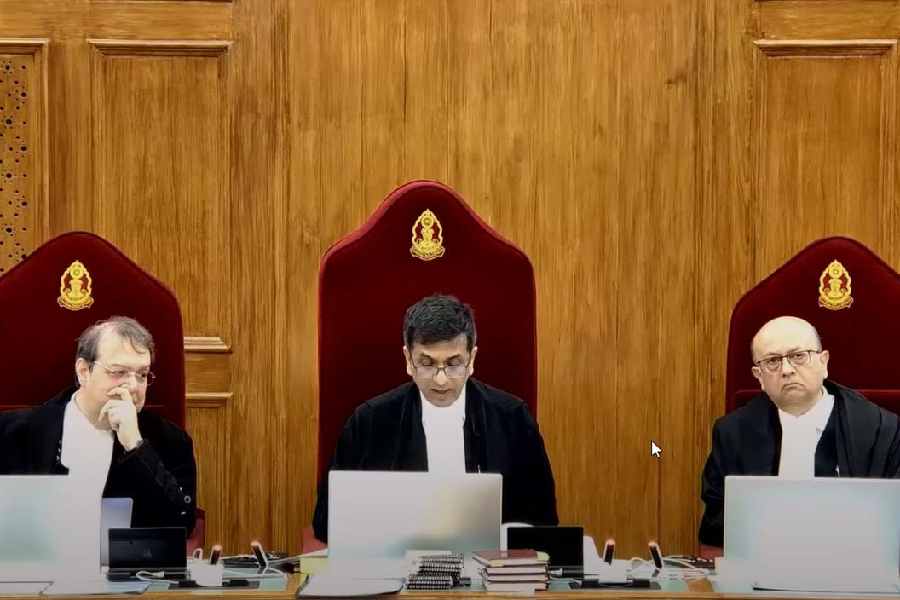The Supreme Court on Tuesday formed a 14-member National Task Force “to formulate protocols” to prevent sex crimes against women doctors, medical students and nurses and attacks on the fraternity in general.
The move follows the August 9 rape and murder of a junior doctor at the RG Medical College and Hospital in Calcutta, which the top court has taken suo motu
cognisance of.
The NTF has been tasked with ensuring safety measures such as the installation of CCTVs at all entry and exit points at hospitals, which have witnessed a rise in attacks on doctors by aggrieved patients and their families countrywide.
Security cameras must be installed also in the corridors, up to the patients’ rooms
and wards.
The NTF must also make sure that each hospital sets up an internal complaints committee (ICC) to handle complaints of sexual harassment of women doctors, students and nurses.
Some of the issues the NTF will look into:
Security
- Triaging (sorting) departments and places in the hospital based on the degree of volatility and possibility of violence. Emergency rooms and ICUs are more prone to violence and may need additional security.
- Screening of baggage and people at the hospital entrance to prevent the entry of arms or drunken people (unless they are patients).
- Training hospital security personnel to manage crowds and grieving people.
Infrastructure
- Separate resting rooms and duty rooms at each department for (a) male doctors, (b) female doctors, (c) male nurses and (d) female nurses, and (e) a gender-neutral common resting space. The room must be well-ventilated and offer sufficient bed space and drinking water. Access must be restricted through security devices.
- Technology, including biometric and facial recognition, to regulate access to critical and sensitive areas.
- Adequate lighting at all places in the hospital (across the campus, if it’s a teaching hospital).
- If medical professionals’ hostels or rooms are at a distance from the hospital, transport must be provided between 10pm and 6am.
- Employment of social workers trained in grief and crisis counselling at all medical establishments.
- Workshops for all employees — including doctors, nurses and helpers — on handling grief and crises.
- An “employee safety committee” made up of doctors, interns, residents and nurses at every hospital to conduct quarterly audits on the safety measures.
- The possible establishment of police posts at medical institutions commensurate with the footfall, bed strength and facilities.
Harassment
- Employers (hospitals) must discharge all their duties as listed under Section 19 of the Sexual Harassment of Women at Workplace (Prevention, Prohibition and Redressal) Act, 2013, which include organising sensitisation programmes and providing a safe working space.
- Every medical institution must have a 24x7 helpline number for medical professionals and emergency distress facilities.
The court asked the NTF to submit an interim report on its recommendations within three weeks, and the final report by two months, from August 20.
The court clarified that the phrase “medical professionals” in the judgment “encompasses every medical professional including doctors, medical students who are undergoing their compulsory rotating medical internship... as a part of the MBBS course, resident doctors and senior resident doctors and nurses” including nursing interns.










